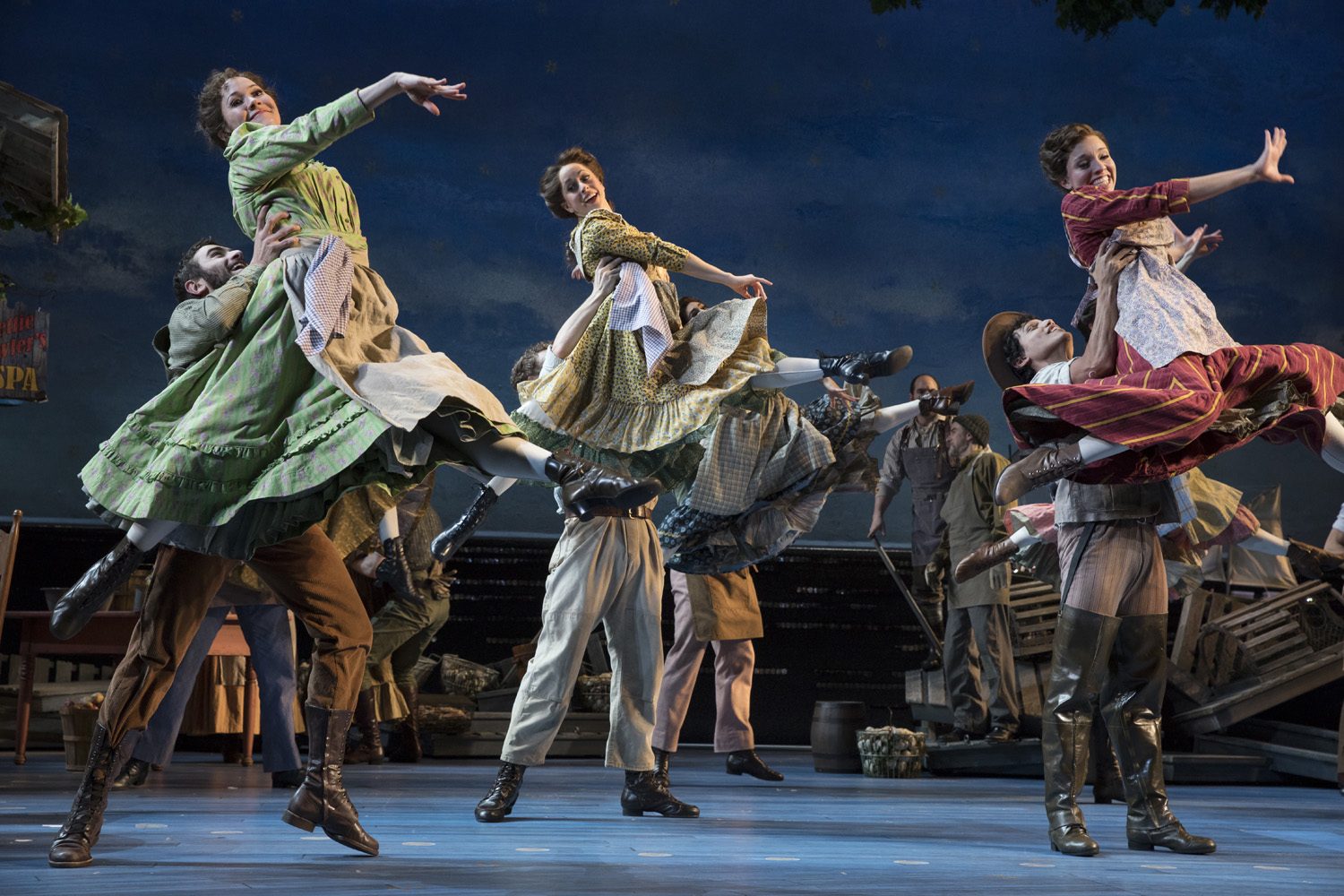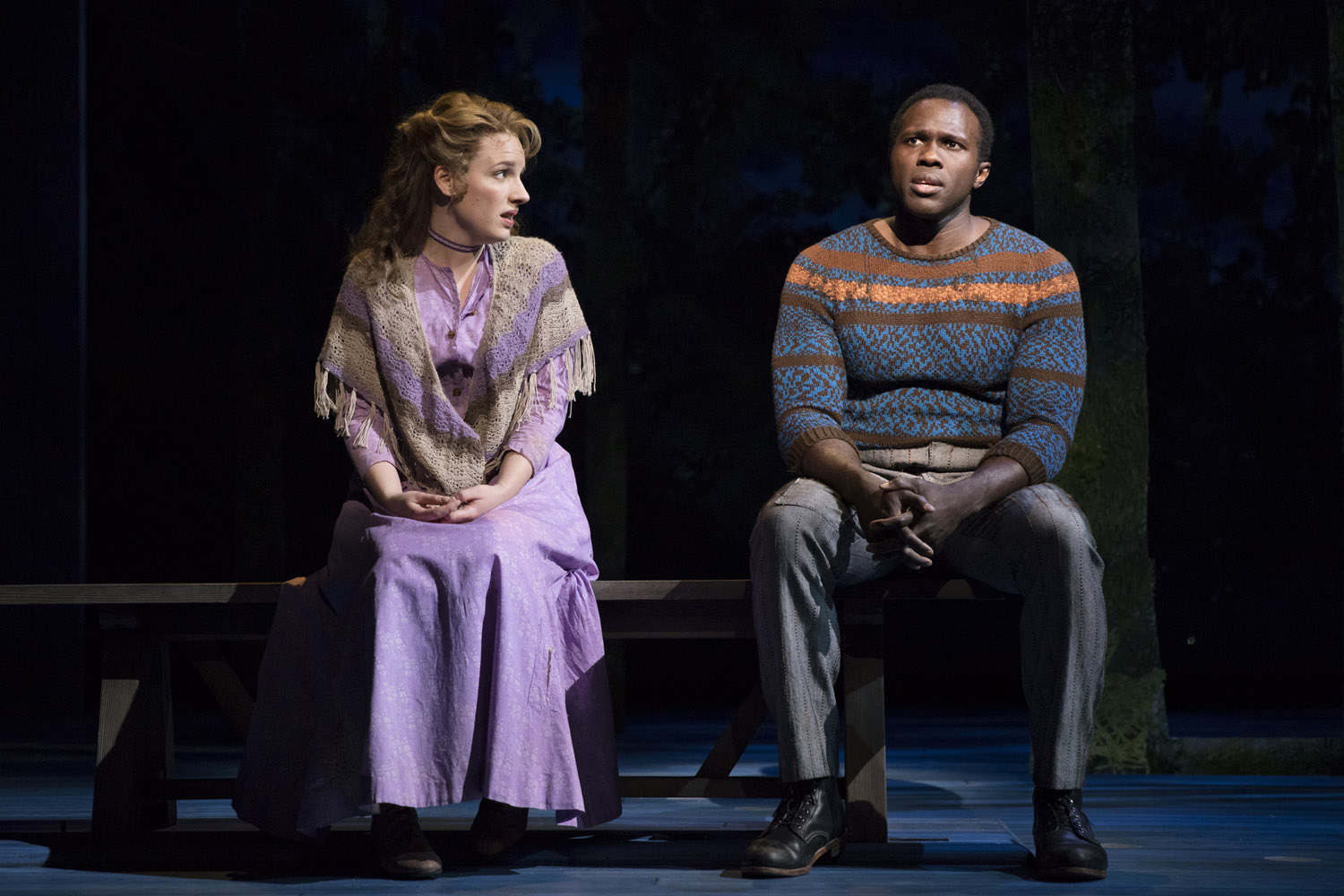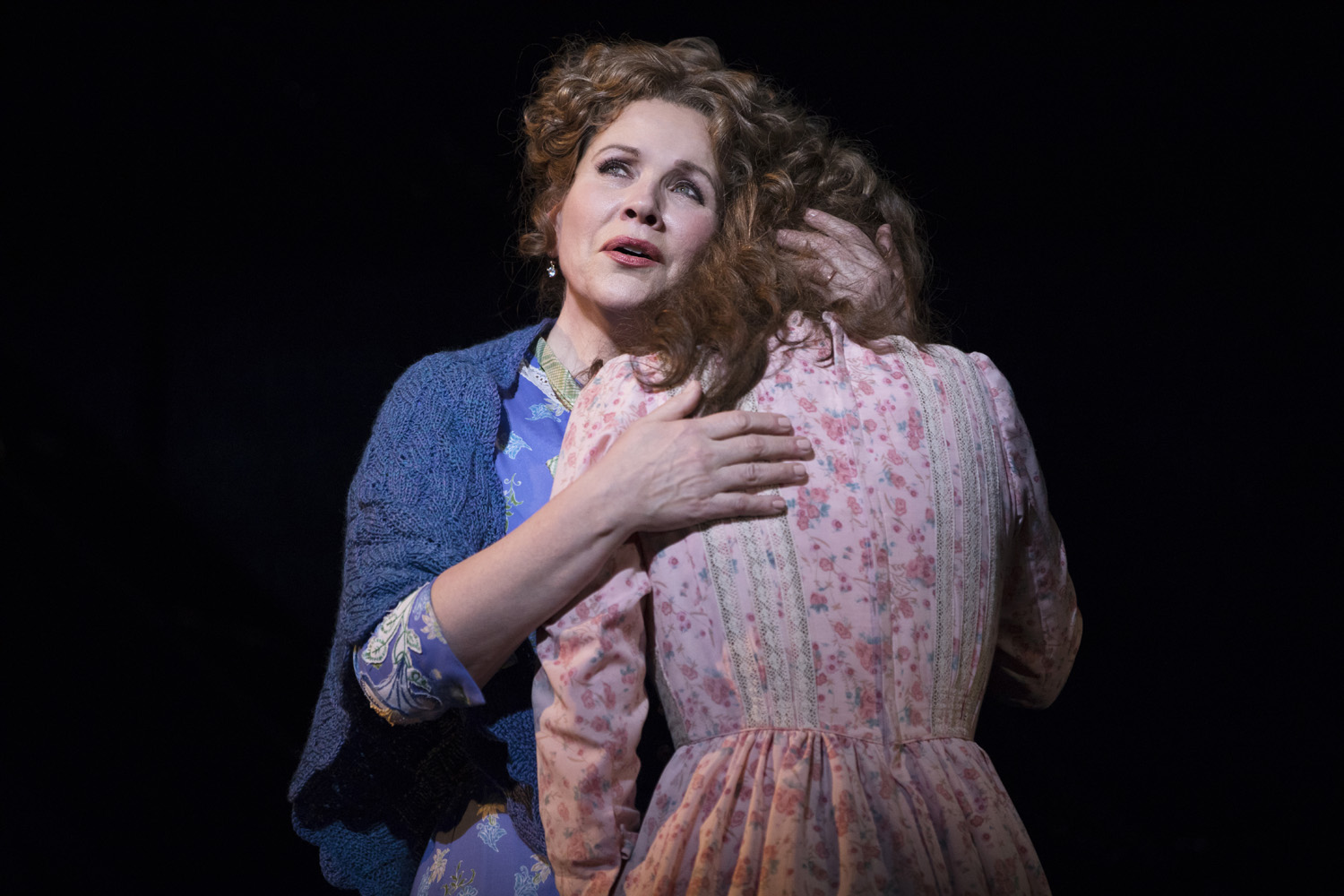Let’s first address the proverbial elephant in the room: Rodgers and Hammerstein’s Carousel is back—and it still glosses over domestic abuse.
When it opened almost exactly 73 years ago at the Majestic Theatre, critics hailed it a masterpiece. Lewis Nichols of The New York Times wrote, “Richard Rodgers and Oscar Hammerstein II who can do no wrong, have continued doing no wrong in adapting Liliom into a musical play.”
Subsequent New York productions have achieved equal amounts of praise and in 1999, Time Magazine proclaimed Carousel “the best Musical of the 20th Century.”

In 1945 however, #metoo and #blacklivesmatter didn’t exist. Sensibilities and sensitivities weren’t nearly as precarious as they are now. Thankfully, we’ve evolved since then.
Yet under Tony winner Jack O’Brien’s masterful direction, there is beauty, insight, and wisdom to be gleaned from this stunning new revival.
Based on Molnar’s Hungarian play Liliom, Carousel introduces us to Billy Bigelow (Joshua Henry), a carnival barker who falls for Julie Jordan (Jessie Mueller) a millworker who swears off marriage–until she meets Bigelow. Amidst a tenuous union and a job loss for both parties, we learn that Billy hit his wife. “He’s unhappy that he ain’t workin’,” Julie tells her friend and co-worker Carrie Pipperidge (Lindsay Mendez) “That’s really why he hit me on Monday,” she continues.

Billy hatches a plan with his pal, Jigger Craigin (Amar Ramasar): The two will stage a robbery and make a quick buck. After all, Billy is expecting a child and as the curtain falls on Act 1, he swears that in order to financially provide for his newborn, he will “go out and make it, or steal it, or take it or die.”
As Julie continues to make excuses for Billy’s domestic abuse, she foreshadows a gloomy ending in her and Nettie’s duet, “What’s the use of Wond’rin?” “Common sense may tell you, that the ending will be sad,” she sings. Carrie however, has been swept away by Enoch Snow (Alexander Gemignani), a fine, fishmongering gentleman who treats Carrie with respect and kindness.
Indeed, the ending will be sad–but it will also be hopeful.
Even with earnest intent, Billy cannot control his emotions in any other way besides anger. “All you ever do to get out of a difficulty-hit someone you love. Failure!”, says one of his heavenly friends.
At that moment, we fully understand Billy Bigelow. He is undeniably flawed and still, undeniably human. Like King Mongkut in Rodgers and Hammerstein’s other classic, The King and I, “they are men who think with their hearts, men who stumble and fall, but men who try. Men you’ll forgive and forgive and help and protect as long as you live.”
This is not to suggest that physical abuse is ever justified. It is not. Yet we must delineate the difference between understanding and acceptance. Billy, like so many who carry internal anger, are products of those who have gone before him. In turn, it is passed down to the next generation. And the vicious cycle– much like the carousel itself– spins and spins. The fact that Mr. Henry is African-American adds even deeper layers to this performance. Henry’s voice is as strong as his broad, muscled shoulders and he exudes more alluring masculinity than a Nascar rally.
Rodgers & Hammerstein probably never meant to tacitly condone spousal abuse, but if we don’t confront this problematic storyline, we do a great disservice to ourselves. But we’re also at fault if we’re blinded to the compassion and forgiveness that this show so generously offers. Our lives, as mentioned in Holy Scripture, are “a mist that appears for a little time and then vanishes.” Carousel reminds us all too painfully of this brevity–as well as the burden that lugging resentment casts on our souls.
There is a bounty of fine moments in this production, but the best one may come from Nettie Fowler (Renee Fleming), whose interpretation of “You’ll Never Walk Alone” is other-worldly and a spiritual hymn unto its own.

Ms. Mueller continues to define her status as a true Broadway star. From a lounge singer in On a Clear Day You Can See Forever to Carole King in Beautiful, another victim of abuse turned empowered protagonist in Waitress and everything in between, there is obviously little she can’t do. Once again, her gorgeous vocals and wonderful acting add credibility to this near perfect reboot.
Justin Peck‘s athletic and energetic choreography is thrilling and his ensemble executes it with immaculate precision. Santo Loquasto‘s dark, but not depressing sets, combined with Brian McDevitt‘s enthralling lighting design make this a sumptuous treat for the eyes. Arguably, Rodgers and Hammerstein’s soaring music is the finest score ever written for Broadway.
All of these elements combine to create the best Broadway musical revival I have ever seen.
Carousel is now playing at the Imperial Theatre (West 45th between Broadway and 8th). For tickets and information, visit Carousel on Broadway.
